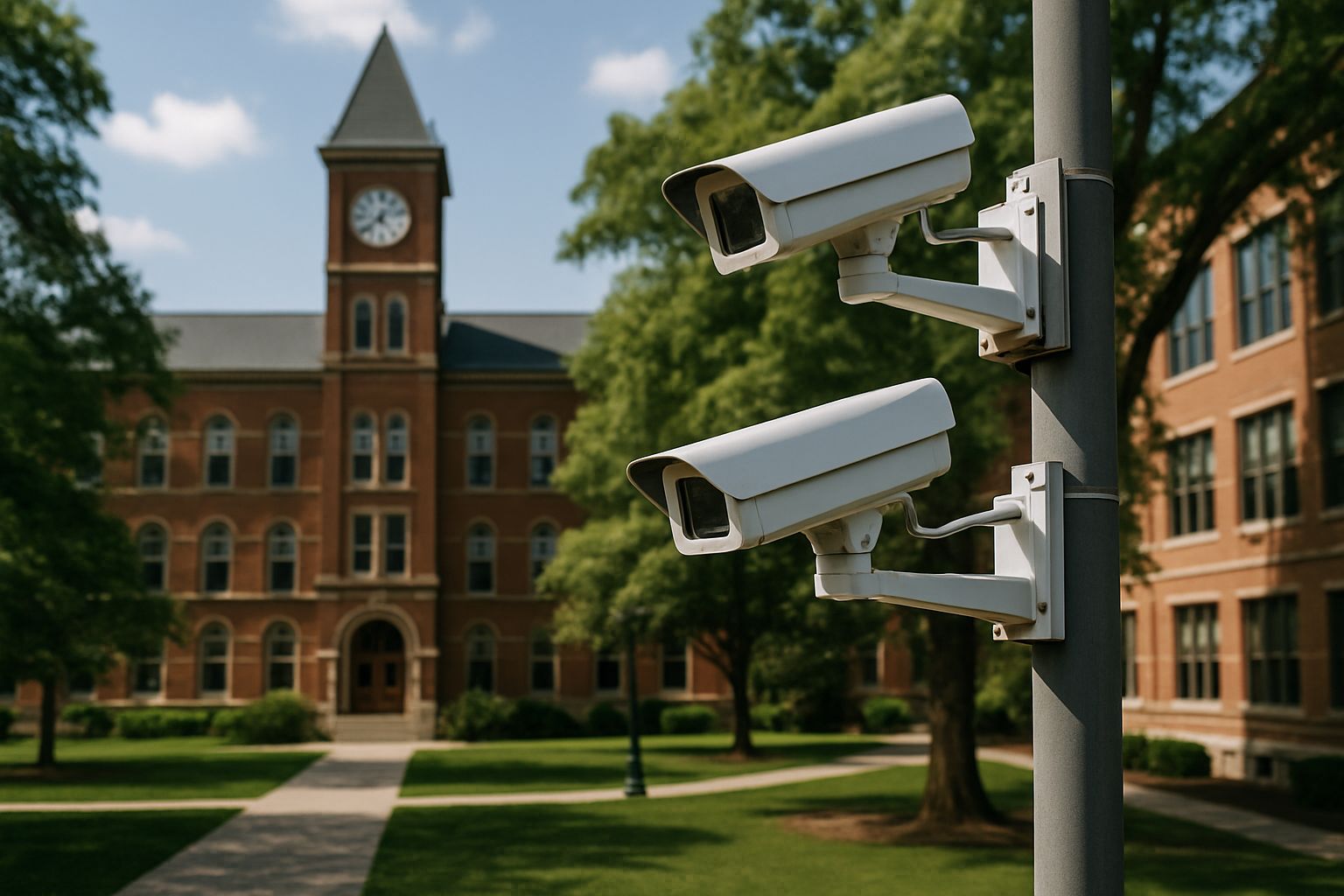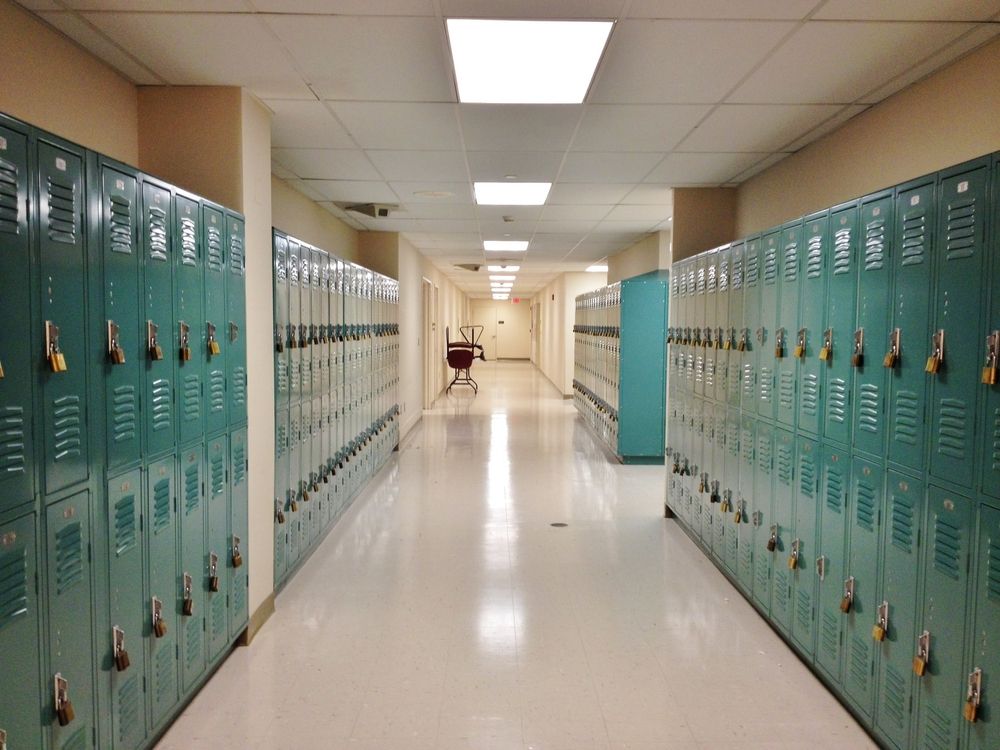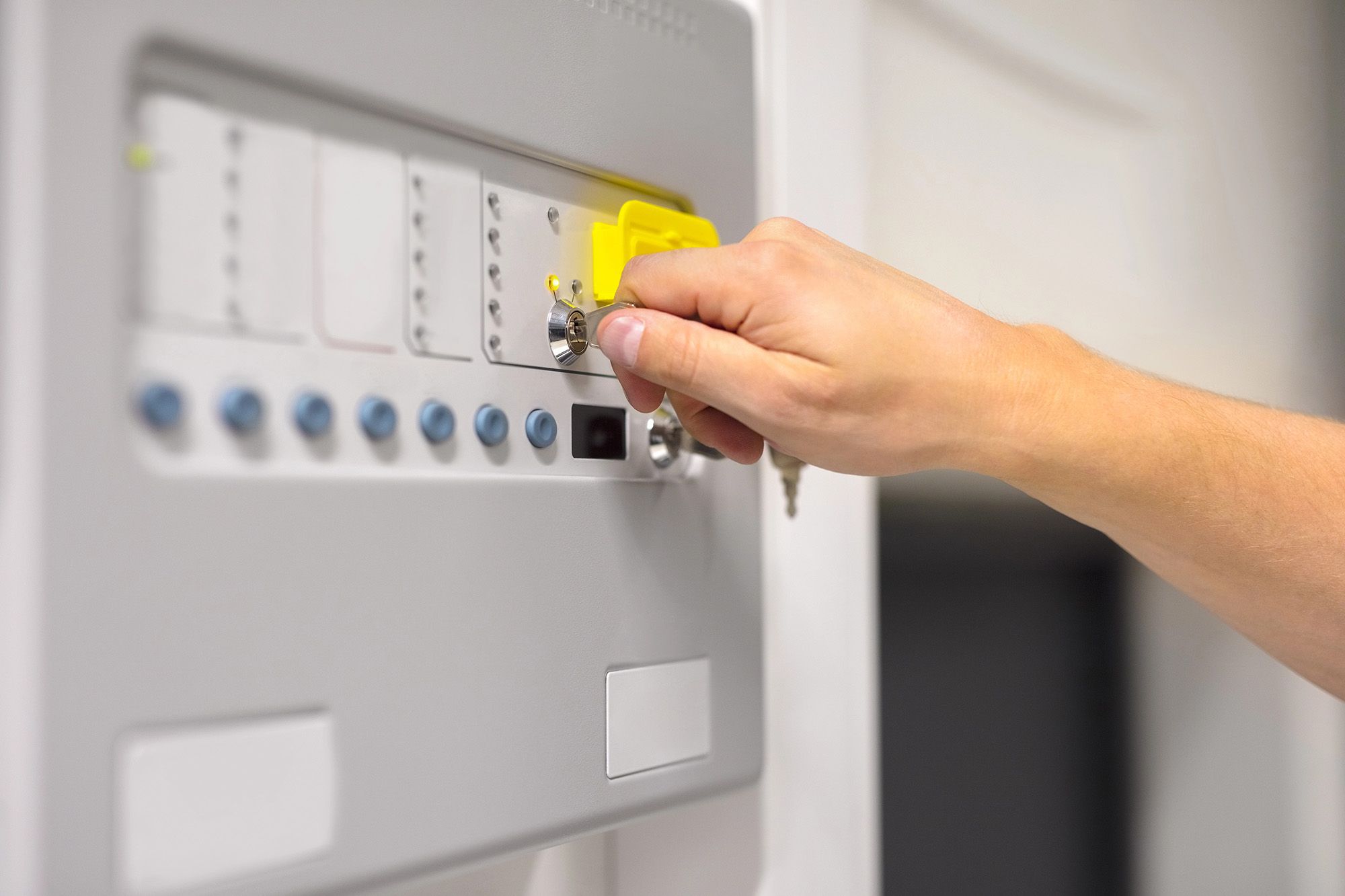Key Takeaways
- Construction site security consulting can reduce theft-related losses by up to 40% through comprehensive risk assessment and tailored security protocols.
- Professional security consultants bring specialized knowledge of both construction operations and emerging security technologies that in-house teams often lack.
- Equipment theft costs the construction industry over $1 billion annually, with additional hidden costs in project delays and insurance premium increases.
- Effective security planning must address both external threats (theft, vandalism) and internal vulnerabilities (employee theft, negligence).
- Site-specific security plans deliver significantly better ROI than generic security measures, with consultants identifying both critical vulnerabilities and cost-saving opportunities.

Construction sites are prime targets for theft, vandalism, and safety hazards, resulting in billions of dollars in annual costs to the industry. Without proper security measures, your project faces substantial financial losses and dangerous liability issues. New England Security specializes in identifying these vulnerabilities before they become costly problems, providing tailored security consulting that protects both assets and people.
Every construction project presents unique security challenges, depending on its location, timeline, and scope. What works for a suburban housing development may not necessarily address the risks associated with an urban high-rise or remote infrastructure project. Security consulting delivers customized protection strategies that generic approaches can’t match.
Article-at-a-Glance
This comprehensive guide examines how professional security consulting transforms construction site protection. We’ll explore vulnerability assessments, customized security planning, and technology solutions that significantly reduce theft, vandalism, and safety incidents. You’ll discover why the strategic approach of security consulting delivers far greater value than reactive security measures implemented after problems occur.
From equipment theft prevention to regulatory compliance, we’ll cover everything construction managers and owners need to know about minimizing security risks through expert consultation. Whether you’re managing a small renovation or overseeing a significant development, these insights will help protect your investment, timeline, and reputation. For instance, innovations like smart gate access systems can be integral in enhancing site security.
The Rising Threat to Construction Sites: Why Security Matters Now
Construction site theft has reached unprecedented levels, with the National Equipment Register reporting over $1 billion in equipment stolen annually—and only 25% ever recovered. Beyond equipment, materials like copper, tools, and supplies regularly disappear from inadequately secured sites. These losses directly impact your bottom line and create costly schedule disruptions.
The COVID-19 pandemic introduced new security challenges as many sites experienced extended shutdowns or reduced staffing, creating perfect opportunities for thieves. Even as operations normalize, construction materials have become increasingly valuable targets due to supply chain issues and inflation. Copper wire, lumber, and even concrete additives now command premium prices on black markets.
Weather events, civil unrest, and changing neighborhood dynamics can all suddenly transform a previously secure location into a high-risk environment. Security consultants monitor these evolving threats and adapt protection strategies accordingly, providing the situational awareness that busy project managers often lack while focusing on construction deadlines.
What Construction Security Consulting Actually Delivers
Professional security consulting goes far beyond recommending guards or cameras. Consultants analyze your specific project vulnerabilities, regulatory requirements, budget constraints, and operational needs to develop comprehensive protection strategies. The result is a customized security approach that maximizes protection while minimizing unnecessary costs. Learn how to avoid common mistakes with security cameras to enhance your construction site’s security.
Site-Specific Vulnerability Assessments
Every construction site has unique security challenges based on location, project type, timeline, and surrounding environment. Security consultants conduct thorough assessments that identify both obvious and hidden vulnerabilities specific to your project. These evaluations examine physical security gaps, procedural weaknesses, and environmental factors that generic security plans would miss. The assessment provides a detailed risk profile that forms the foundation for effective security planning. For more insights on improving security measures, explore innovations in security that can transform your protection strategies.
Customized Security Plans Based on Project Scope
Cookie-cutter security approaches waste resources by over-securing low-risk areas while leaving critical vulnerabilities exposed. Professional consultants develop phase-specific security plans that adapt as your project evolves from groundbreaking to completion. This strategic approach ensures appropriate protection at each stage without unnecessary expenses. Your security measures will scale appropriately as the site transforms and valuable equipment and materials accumulate. For more insights, explore how scalability in focus can be applied to security services.
Regulatory Compliance Expertise
Construction sites must navigate complex security regulations that vary by location, project type, and funding source. Security consultants bring specialized knowledge of local ordinances, insurance requirements, OSHA regulations, and contractual obligations that impact your security planning. This expertise prevents costly compliance violations and ensures your security measures satisfy all legal and contractual requirements. For more on how to enhance your site’s security, consider exploring remote video monitoring systems.
ROI Analysis of Security Investments
Security consultants provide detailed cost-benefit analyses that demonstrate the return on investment for various security measures. This data-driven approach helps you allocate budget to solutions that deliver maximum protection at minimum cost. By quantifying both direct savings (reduced theft and vandalism) and indirect benefits (lower insurance premiums, fewer delays), consultants justify security investments to stakeholders and identify the most cost-effective protection strategies for your specific project needs.
The Real Cost of Construction Site Theft and Vandalism
The direct costs of theft and vandalism represent only a fraction of the total financial impact on construction projects. When equipment disappears or facilities are damaged, the resulting downtime, replacement logistics, and administrative burden create cascading effects that multiply the initial loss several times over. Security consultants analyze these hidden costs to prioritize protection measures for your most vulnerable and valuable assets.
Equipment Theft: A $1 Billion Annual Problem
Heavy equipment theft alone costs contractors approximately $1 billion annually according to industry data, with recovery rates below 25%. The most commonly stolen items include skid steers, generators, compressors, and small to medium-sized excavators that are easily transported. Beyond replacement costs, stolen equipment creates costly schedule disruptions while replacements are sourced. Security consultants develop specialized protocols for high-value equipment, including strategic placement, enhanced monitoring, and proper immobilization techniques that dramatically reduce theft opportunities.
Project Delays and Schedule Disruptions
When critical equipment or materials disappear, construction schedules immediately suffer. Even a single day’s delay can trigger contractual penalties and create costly labor inefficiencies as crews stand idle. Security consultants analyze workflow patterns to identify when and where critical assets are most vulnerable, then develop protection strategies specifically for these high-impact items. This targeted approach protects not just the assets themselves, but the entire project timeline that depends on their availability.
Insurance Premium Increases
Multiple security incidents can trigger substantial insurance premium increases or even coverage limitations for future projects. Some contractors report premium increases of 15-30% following significant theft or vandalism claims. Security consultants work directly with insurance providers to implement recognized risk-reduction measures that can lower premiums and improve coverage terms. These collaborative relationships often result in preferred insurance rates for clients with professional security planning in place.
Reputation Damage with Clients
Security incidents that delay projects or require budget adjustments damage your professional reputation with clients and partners. In competitive bidding environments, a history of security problems can disqualify contractors from consideration. Security consultants help protect your professional reputation by preventing the incidents that lead to client dissatisfaction. Their expertise also provides documentation of due diligence that protects you from allegations of negligence when incidents do occur despite proper precautions.
5 Critical Security Measures Every Construction Site Needs
While each project requires customized security planning, certain fundamental protections form the foundation of any effective construction site security strategy. Security consultants help implement these essential measures with site-specific adaptations that maximize their effectiveness for your particular project environment.
1. Perimeter Protection Beyond Basic Fencing
Standard chain-link fencing provides only minimal security and is easily defeated by determined intruders. Effective perimeter protection requires strategic design that eliminates hiding spots, climbing aids, and unmonitored access points. Security consultants design comprehensive perimeter systems that may include anti-climb features, concrete barriers, strategic vegetation management, and tamper-detection technology integrated with other security systems.
Temporary construction fencing becomes far more effective when combined with proper lighting, signage, and strategic placement that channels all site access through controlled points. Consultants analyze traffic patterns, material delivery logistics, and neighborhood factors to create perimeter systems that balance security with operational efficiency. They also identify when traditional fencing should be supplemented with crash-resistant barriers, anti-cutting mesh, or other specialized solutions for high-risk areas.
2. Access Control Systems That Actually Work
Effective access control means knowing exactly who is on your site at all times and ensuring only authorized personnel can enter specific areas. Modern solutions range from basic sign-in systems to sophisticated biometric verification, with consultants helping you select the appropriate technology for your project scope and risk profile. The best systems balance security with operational efficiency, preventing unauthorized access without creating bottlenecks that frustrate workers and delay deliveries. For comprehensive site protection, consider enhancing your setup with mobile patrol services that ensure ongoing vigilance.
3. Strategic Surveillance Placement
Effective surveillance doesn’t mean blanketing a site with cameras, but rather strategically positioning monitoring systems at key vulnerability points. Security consultants analyze site layouts to identify optimal camera placement that maximizes coverage with minimal equipment. This approach ensures high-value assets, access points, and blind spots receive appropriate monitoring while avoiding unnecessary expenditure on redundant coverage.
Modern surveillance solutions combine traditional cameras with advanced technologies like motion detection, thermal imaging, and AI-powered analytics that can distinguish between authorized activity and potential threats. These systems dramatically reduce false alarms while providing actionable intelligence when genuine security incidents occur. Consultants help you select the right technology mix for your specific site conditions and security requirements.
4. Lighting That Deters Intruders
Proper lighting is among the most cost-effective security investments, yet many construction sites implement it incorrectly. Security consultants design lighting plans that eliminate shadows and blind spots while highlighting key security zones. They consider factors like energy efficiency, neighborhood impact, and integration with surveillance systems to create lighting that actively deters intruders without creating operational problems.
Advanced lighting solutions now include motion-activated systems, remote management capabilities, and solar options that work even in areas without permanent power. The right consultant will help determine which technologies make sense for your specific site conditions and project duration, preventing both over-investment in temporary facilities and dangerous under-illumination of critical areas.
5. Asset Tracking and Inventory Management
You can’t protect what you don’t track. Comprehensive asset management systems establish accountability and quickly identify when items go missing. Security consultants implement tracking protocols that balance thoroughness with practical worksite realities, ensuring valuable equipment and materials remain accounted for without creating burdensome processes that workers will circumvent.
Modern asset tracking options range from simple barcode systems to sophisticated GPS and RFID solutions that provide real-time location data for high-value items. The right consultant will help you implement a system matched to your specific equipment profile and risk assessment, focusing resources on protecting your most valuable and vulnerable assets while maintaining appropriate oversight of all site resources.
Technology Solutions That Transform Site Security
Technology Comparison: Traditional vs. Advanced Security Solutions
Traditional security relies on physical barriers, human guards, and basic alarms. Modern systems leverage AI analytics, wireless connectivity, and integration capabilities to provide comprehensive protection with fewer resources. A qualified security consultant bridges these approaches, implementing appropriate technology while maintaining necessary human oversight.
Technology has revolutionized construction site security, creating opportunities for more effective protection at lower operational costs. Security consultants stay current with emerging technologies and can recommend solutions that provide the best value for your specific project needs. The most effective consultants maintain vendor neutrality, recommending products based on performance rather than sales relationships.
Implementing advanced security technology requires specialized expertise to ensure proper installation, configuration, and integration. Consultants coordinate with technology providers to create systems that work together seamlessly, avoiding the common pitfall of disconnected security components that create gaps in protection and operational inefficiencies.
Cloud-Based Monitoring Systems
Cloud-based security platforms have transformed how construction sites are monitored, allowing real-time oversight from anywhere and instant notification when potential security issues arise. These systems eliminate the need for expensive on-site monitoring stations while providing superior visibility into site conditions. Security consultants configure these platforms to focus on your specific security priorities and integrate with your existing project management systems.
AI-Powered Cameras vs. Traditional CCTV
Traditional CCTV systems capture footage but require human monitoring to identify security threats—an expensive and often unreliable approach. Modern AI-powered systems can distinguish between normal construction activity and security threats, dramatically reducing false alarms while providing faster response to genuine incidents. Consultants help determine which locations benefit most from AI capabilities and where traditional surveillance remains sufficient.
Drone Surveillance for Large Sites
Aerial surveillance provides unique security advantages for large construction sites where traditional fixed cameras struggle to provide comprehensive coverage. Programmed drone flights can regularly inspect perimeters, monitor remote areas, and document site conditions with minimal human intervention. Security consultants develop drone deployment strategies that complement ground-based security measures while navigating the regulatory requirements for commercial drone operations in your specific location.
The Human Element: Training Your Team for Security Awareness
Technology alone cannot secure a construction site. Your workforce represents both your greatest security vulnerability and your most valuable security asset. Security consultants develop training programs that transform workers from potential security risks into active participants in your site protection strategy. This human-centered approach creates a security culture that technology alone cannot achieve.
Security Protocols Everyone Should Follow
Effective security requires consistent implementation of basic protocols by everyone on site. Security consultants develop clear, practical procedures for common security situations, then create training materials that ensure all workers understand their responsibilities. These protocols address daily operations like equipment check-out, visitor management, and secure storage practices that prevent both opportunistic theft and organized criminal targeting.
Reporting Suspicious Activity
Workers who understand what constitutes suspicious activity and know how to report concerns become your most effective security monitoring system. Security consultants create reporting mechanisms that make it easy for workers to share observations without fear of retaliation or ridicule. This approach captures valuable security intelligence that automated systems might miss while creating a site culture where security awareness becomes everyone’s responsibility. For more insights on creating a secure environment, check out this construction site security plan.
Emergency Response Procedures
When security incidents occur despite prevention efforts, the response can determine whether the situation remains minor or escalates into a major problem. Security consultants develop clear emergency procedures tailored to your specific site risks and available resources. These plans ensure everyone knows their role during security emergencies, from front-line workers to project management, preventing the confusion that often compounds security incidents. For those interested in enhancing their site’s safety, consider exploring advanced training for fire watch guards as an additional precaution.
How to Choose the Right Security Consultant for Your Project
Security Consultant Selection Criteria
– Construction industry experience (minimum 5+ years)
– Familiarity with your specific project type
– Clear assessment methodology
– Implementation support capabilities
– References from similar projects
– Professional certifications (CPP, PSP, etc.)
– Insurance/liability coverage
Selecting the right security consultant significantly impacts the effectiveness of your security investment. The construction industry presents unique security challenges that general security professionals may not fully understand. Look for consultants with specific construction experience who can balance security needs with practical operational realities.
The best consultants remain vendor-neutral, recommending solutions based on your specific needs rather than pushing preferred products or services. This independence ensures you receive recommendations driven by your security requirements rather than sales incentives. Ask potential consultants directly about their relationships with security vendors and how they maintain objectivity in their recommendations.
Request detailed proposals that clearly explain assessment methodologies, deliverables, and implementation support. Quality consultants provide transparent pricing structures and clearly defined scopes of work that prevent misunderstandings and scope creep. Their proposals should demonstrate understanding of your specific project rather than presenting generic security solutions.
Experience in Your Specific Construction Niche
Security requirements vary dramatically between construction sectors. Highway projects face different challenges than high-rises, and healthcare construction presents unique security considerations compared to residential developments. The ideal consultant brings specific experience with your project type, allowing them to anticipate problems and implement solutions proven effective in similar environments. Ask potential consultants for case studies or references from projects comparable to yours in size, scope, and sector.
Assessment Methodology Questions to Ask
Quality consultants follow structured assessment methodologies that ensure comprehensive evaluation of your security needs. Ask potential consultants to explain their assessment approach, including how they evaluate threats, vulnerabilities, and existing security measures. The best consultants combine quantitative risk assessment tools with qualitative factors like organizational culture and operational requirements to develop a complete security profile that drives effective recommendations. For more insights, check out this construction site security plan creation guide.
Implementation Support vs. Recommendations-Only
Security recommendations deliver value only when properly implemented. Some consultants provide comprehensive implementation support, while others focus solely on assessment and recommendations. Determine what level of ongoing support you need based on your internal resources and security expertise. The most effective consultants offer flexible support options that can adapt as your project and security needs evolve, from full implementation management to periodic review of security operations.
Case Study: How Security Consulting Saved a High-Rise Project $250,000
Security Consulting ROI: 40-Story High-Rise Development
Initial consulting fee: $18,500
Security plan implementation: $87,000
Documented savings:
– Equipment theft prevention: $125,000
– Reduced insurance premiums: $68,000
– Avoided schedule delays: $57,000
– Total ROI: 137% in first year, as detailed in this construction site security plan.
A major developer in the Southeast faced persistent security problems during the early phases of a 40-story mixed-use tower construction. After losing over $75,000 in equipment and materials to theft during site preparation, they engaged a professional security consultant to develop a comprehensive protection strategy.
The consultant’s vulnerability assessment identified several critical security gaps, including inadequate perimeter control, poor lighting in staging areas, and inconsistent access management procedures. Rather than simply recommending more guards, the consultant developed a phased security plan that matched protection measures to evolving project needs.
By implementing strategic technology deployments and revising operational procedures, the consultant helped reduce security incidents by over 90% while actually lowering monthly security costs compared to the previous guard-heavy approach. The most valuable recommendation proved to be a revised equipment staging protocol that virtually eliminated opportunistic theft without impacting construction efficiency. Learn more about how mobile patrol services can enhance security measures.
The project ultimately documented over $250,000 in savings through prevented theft, reduced insurance costs, and avoided schedule delays. The initial consulting investment of $18,500 delivered a return exceeding 1,300% over the project lifecycle, demonstrating the exceptional value of professional security consulting when properly implemented.
Take Action: Implementing Your New Security Strategy
Converting security recommendations into effective protection requires thoughtful implementation planning. Start by prioritizing high-impact, low-cost measures that address your most significant vulnerabilities. Develop a phased implementation timeline that aligns security enhancements with your construction schedule and budget availability. Remember that partial implementation of a well-designed security plan often delivers better results than comprehensive implementation of poorly conceived measures.
Frequently Asked Questions
Construction site security consulting generates many questions from project managers and owners unfamiliar with professional security services. Here are answers to the most common inquiries we receive about construction security consulting.
How much does construction security consulting typically cost?
Construction security consulting typically costs between $5,000 and $25,000 for comprehensive assessment and planning, depending on project size, complexity, and location. This investment generally represents less than 0.5% of total project costs while protecting against losses that can exceed 5% of budget when security is inadequate. Many consultants offer tiered service options that can accommodate various budget constraints while still providing essential security guidance.
Can security consulting help reduce my insurance premiums?
Yes, professional security consulting often leads to insurance premium reductions of 10-20% when recommendations are properly implemented. Many insurers offer specific discounts for professionally designed security plans that address their primary concerns about construction risk. The best security consultants can help document your enhanced protection measures for insurance underwriters, maximizing premium reductions and sometimes securing coverage terms that would otherwise be unavailable for high-risk projects. For example, remote video monitoring systems can be an effective measure to enhance security and potentially lower insurance costs.
What’s the difference between hiring security guards and using a security consultant?
Security guards provide tactical response to immediate situations but rarely address the strategic vulnerabilities that create security risks. Security consultants analyze your entire operation to identify and address root causes of security problems, often finding solutions that reduce or eliminate the need for expensive guard services.
While guards represent ongoing operational expenses, consulting delivers long-term strategic value through systems and procedures that continue protecting your site without continuous expenditure. The most effective security programs typically combine strategic consulting with carefully deployed guard services based on specific risk assessments.
- Guards focus on response; consultants focus on prevention
- Guards represent recurring costs; consulting is typically a one-time investment
- Guards have limited scope; consultants address comprehensive security planning
- Guards implement security; consultants design security systems
- Guards work within existing parameters; consultants improve the entire security framework
Many construction managers mistakenly view guards as their primary security solution when most security incidents actually result from systemic vulnerabilities that guards cannot address. Professional consulting identifies these fundamental weaknesses and develops comprehensive solutions that may include guards as one component of a broader security strategy.
For optimal results, consider engaging a security consultant first to develop your protection strategy, then implement guard services as recommended based on your specific risk profile rather than generic industry practices.
How long does a typical security assessment take to complete?
A comprehensive security assessment typically requires 2-4 weeks for most construction projects, including site visits, documentation review, and development of recommendations. Larger or more complex projects may require additional time, particularly those with multiple phases or special security considerations. The assessment timeline should be clearly defined in your consulting agreement, with milestone reviews to ensure the process remains on schedule and addresses your specific security priorities.
Can security consulting help with worker safety as well as theft prevention?
Absolutely. Effective security consulting addresses both asset protection and personnel safety through integrated approaches that enhance overall site security. Many safety incidents occur under the same conditions that facilitate theft and vandalism—poor access control, inadequate lighting, and insufficient oversight of site operations. By addressing these shared vulnerabilities, security consulting often improves safety metrics alongside reduced theft and property damage.
Security consultants frequently collaborate with safety managers to develop protocols that enhance both protection objectives without creating operational conflicts or redundant requirements. This coordinated approach delivers better outcomes than treating security and safety as separate concerns, while also improving worker compliance with both sets of procedures.
Construction sites are often vulnerable to various security risks, including theft, vandalism, and unauthorized access. To mitigate these risks, it is essential to implement comprehensive security measures. One effective strategy is to utilize mobile patrol services, which provide regular monitoring and immediate response to any incidents. Additionally, installing surveillance cameras and ensuring proper lighting can deter potential intruders and enhance site security. By adopting these measures, construction companies can protect their assets and ensure the safety of their workers.




